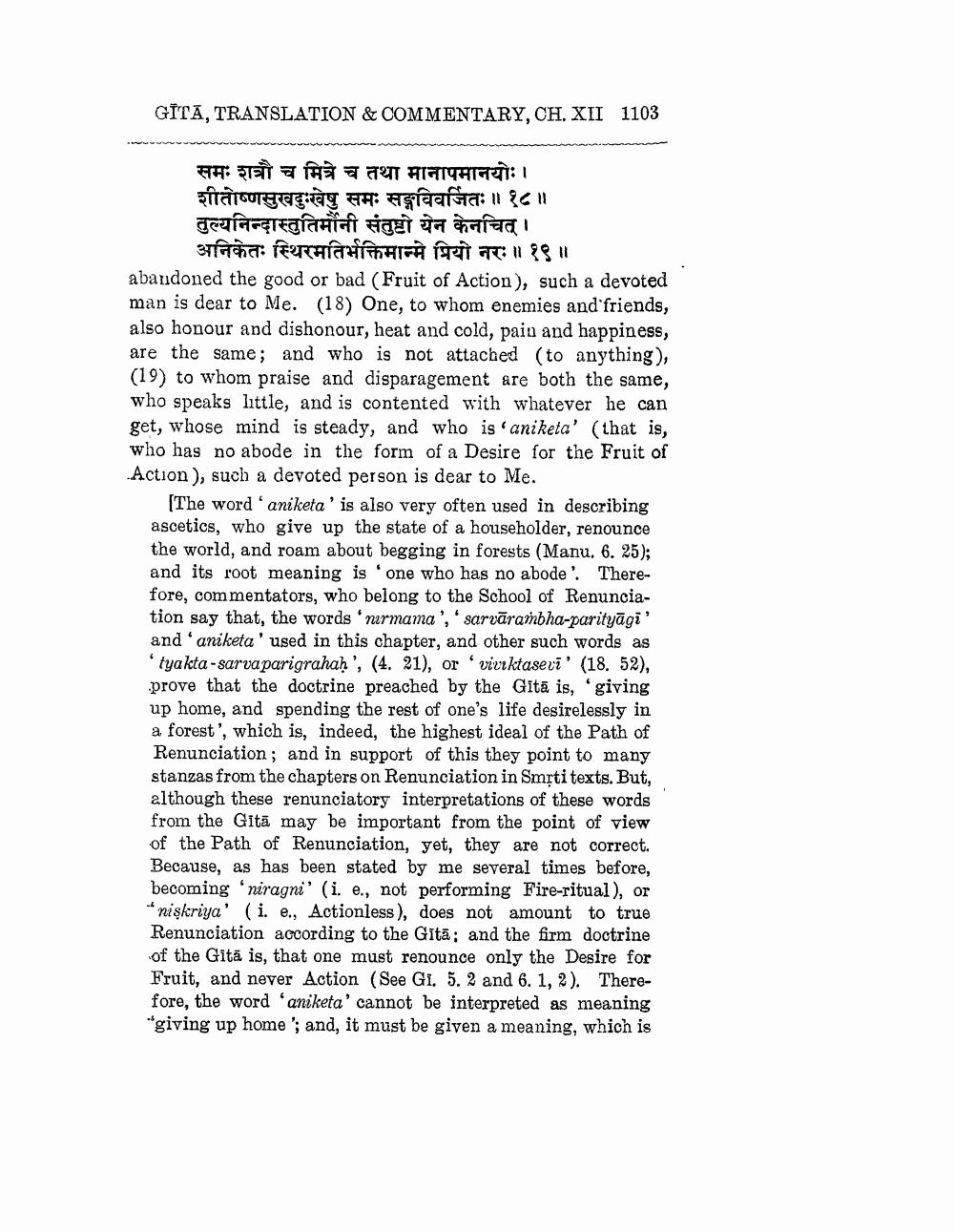________________
GITĀ, TRANSLATION & COMMENTARY, CH. XII 1103
समः शत्रौ च मित्रे च तथा मानापमानयोः। शीतोष्णसुखदुःखेषु समः सङ्गविवर्जितः॥१८॥ तुल्यनिन्दास्तुतिौनी संतुष्टो येन केनचित् ।
अनिकेतः स्थिरमतिर्भक्तिमान्मे प्रियो नरः॥१९॥ abandoned the good or bad (Fruit of Action), such a devoted man is dear to Me. (18) One, to whom enemies and friends, also honour and dishonour, heat and cold, pain and happiness, are the same; and who is not attached (to anything), (19) to whom praise and disparagement are both the same, who speaks little, and is contented with whatever he can get, whose mind is steady, and who is 'aniketa' (that is, who has no abode in the form of a Desire for the Fruit of Action), such a devoted person is dear to Me.
[The word ' aniketa' is also very often used in describing ascetics, who give up the state of a householder, renounce the world, and roam about begging in forests (Manu. 6. 25); and its root meaning is one who has no abode'. Therefore, commentators, who belong to the School of Renunciation say that, the words 'nırmama', 'sarvārambha-parityāgi' and 'aniketa' used in this chapter, and other such words as 'tyakta -sarvaparigrahah', (4. 21), or 'vivrktasevi' (18. 52), prove that the doctrine preached by the Gitā is, 'giving up home, and spending the rest of one's life desirelessly in a forest', which is, indeed, the highest ideal of the Path of Renunciation; and in support of this they point to many stanzas from the chapters on Renunciation in Smrti texts. But, although these renunciatory interpretations of these words from the Gitā may be important from the point of view of the Path of Renunciation, yet, they are not correct. Because, as has been stated by me several times before, becoming ‘niragni' (i. e., not performing Fire-ritual), or * niskriya' (i. e., Actionless), does not amount to true Renunciation according to the Gitā; and the firm doctrine of the Gită is, that one must renounce only the Desire for Fruit, and never Action (See GI. 5. 2 and 6. 1,2). Therefore, the word 'aniketa' cannot be interpreted as meaning "giving up home '; and, it must be given a meaning, which is




